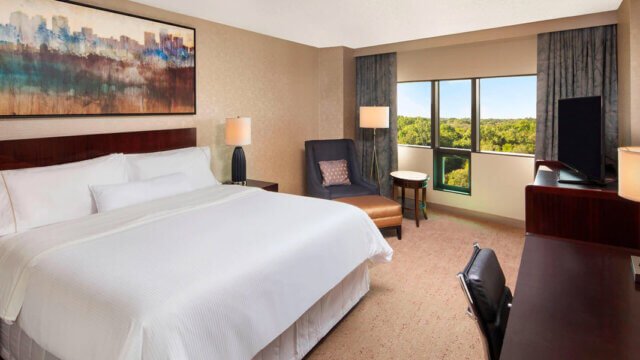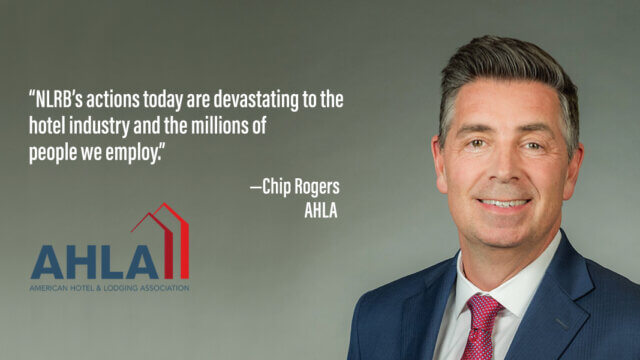NATIONAL REPORT—To leave a lasting positive impression on hotel guests, you need to keep indoor allergens at bay. Allergens can wreak havoc on indoor air quality, and therefore, your guests’ health and wellness. To achieve exceptional cleanliness and comfort—the top two things travelers care about when choosing a hotel[i]—it’s crucial to focus on vacuuming to reduce allergens and improve indoor air quality.
To exceed guests’ expectations by combatting allergens for the ultimate clean, keep these considerations in mind.
Indoor allergens can rise from the surface, lowering air quality
Even if a hotel room or lobby looks spotless, pollutants may be lurking on the surface. Indoor allergens, such as dust mites and dander—along with outdoor allergens like pollen and mold, brought indoors on clothing[ii]—can settle onto floors and furniture.
In fact, a study[iii] concluded that floors contained the highest concentrations of allergens in buildings—and that carpets are even more susceptible than smooth floors. Once these high levels of allergens settle on the surface, they are likely to rise into the air, where they can be inhaled.
Poor indoor air quality is detrimental to guests’ overall health and wellness
With 95% of travelers reading reviews,[iv] a hotel’s reputation is only as good as the previous guests’ opinions. A broad majority of frequent travelers are concerned about air quality, and more than half have suffered various symptoms—from poor sleep to sore throats—caused by poor indoor quality.[v]
The last thing you want is for guests to have—and write about online—fatigue, headaches, shortness of breath and other issues caused by poor indoor air quality[vi] during their stays. For the more than 60 million Americans[vii] suffering from asthma and allergies, symptoms caused by allergens can be more severe and far reaching, sometimes requiring emergency medical attention.
Vacuuming is one of the best ways to combat indoor allergens
Allergy Standards Limited (ASL) recommends that hotel managers prioritize vacuuming, among other steps, to help contain and reduce the level of indoor allergens throughout the property. For the most thorough clean, use slow, repeated passes at least twice daily for high-traffic areas. Walk-off mats should receive special attention; vacuum them at least once a day and have them professionally cleaned every few days.
Use a certified vacuum for the best results
The Sanitaire® EON™ ALLERGEN Commercial Upright Vacuum (SC5505A) is the ultimate choice for improving indoor air quality, as it’s the first commercial upright vacuum cleaner to earn asthma & allergy friendly® Certification from the Asthma and Allergy Foundation of America (AAFA) and ASL.
The EON ALLERGEN is backed by the highest level of Carpet & Rug Institute (CRI) certification—the CRI Gold Seal of Approval—and its sealed HEPA system successfully captures particles at a 99.97% rate. This dynamic upright also allows for quiet day-cleaning at 68 dBA to help facilities keep energy costs down, guest reviews high and LEED certifications maintained.
—Brad Hoare, senior product manager, Sanitaire
To learn more about how to reduce allergens for improved air quality, or to request a quote for orders of the EON ALLERGEN, visit sanitairecommercial.com.
###
[i] “Consumer Research Identifies Which Attributes Are Most Important to Travelers When Booking A Hotel,” TrustYou and Pennsylvania State University
[ii] Asthma and Allergy Foundation of America (AAFA)
[iii] “Cleaning, Indoor Environmental Quality and Health: A Review of the Scientific Literature,” Minnesota Department of Health, August 2008
[iv] “Ibid.”
[v] “Hotel air quality a ‘concern’ for travellers,” Filtration Industry Analyst, Volume 2005
[vi] U.S. Environmental Protection Agency
[vii] AAFA




